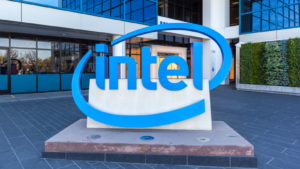The market is still enamored with AI news, raising the profile of some sectors in tandem with its growth. One of the most promising technologies that can help AI is quantum computing stocks, which continue to gain traction as the tech develops.
Quantum computing is seen as the next revolution in modern technology. It can potentially solve complex mathematical problems that classic computers have failed to solve. As the technology matures, experts agree that quantum computing will gain industry relevance in the near future.
There is also growing confidence in quantum computing’s ability to revolutionize various sectors, and several countries are continuously investing in unlocking its full potential. This has continued to spark interest in the risk of buying into companies that can potentially lead the quantum revolution.
Here I examine three companies involved in developing quantum computing technology that invest much of their profits into research and development (R&D). To come up with the list of quantum stocks, I screened for the following criteria:
- Companies Involved in the development of quantum computing technology
- Positive growth cash from operations
- High R&D expense relative to revenue (percent of R&D expenses compared to its revenue)
I then sorted the list highest to lowest in terms of R&D expenses relative to its revenue. I used these criteria to focus only on companies with high research spending that still have the capital to run their operations.
Intel (INTC)

While known for its core series processors, Intel (NASDAQ:INTC) has largely contributed to developing quantum systems. Its 12-qubit silicon chip Tunnel Falls is dedicated to helping the research community advance silicon spin qubit research. Tunnel Falls offers a 95% yield rate across the wafer and voltage uniformity, using Intel’s most advanced fabrication capabilities for easier scalability.
In addition, Intel recently released its quantum software development, which allows researchers to simulate the entire quantum computer and interface with the company’s quantum hardware.
Looking closer at its financials, Intel spends almost 30% of its revenue on R&D alone. While this does not necessarily mean that everything goes into quantum computing, it’s evident that the company is serious about contributing significantly to its development.
In addition, its expertise in CPU processors gives me confidence that Intel can be a significant player in the future of quantum computing. Its cash generation from operations amounted to $11.5 billion in its 2023 fiscal year, which is more than enough to fund its operations and research. If you are looking for stocks that can potentially impact quantum computing development, then Intel is worth a look.
Amazon (AMZN)

Since its modest origins selling books online, Amazon (NASDAQ:AMZN) has evolved into the modern tech behemoth we know today.
In its evolution, we have seen how Amazon strives to break barriers in its e-commerce business. For example, Amazon’s AWS (Amazon Web Services) offers customers on-demand cloud computing platforms and application programming interfaces (APIs) as a metered, pay-as-you-go service. In 2019, Amazon Web Services made a significant move to contribute to the quantum computing race. It established a dedicated center for quantum computing on Caltech’s campus.
In addition to its current offerings, Amazon Web Services offers Amazon Braket, which provides fully managed quantum computing hardware to vendors like IonQ (NASDAQ:IONQ). This will allow its customers to run experiments using various hardware architectures that fit their needs.
In FY2023, Amazon allotted 14.89% of its revenue to R&D, which contributed to developing its in-house fabrication of a custom-designed chip that promises to suppress errors by a factor of 100.
With a strong cash generation of $73.89 billion and dedication to R&D, Amazon has the expertise and cash to become one of the top quantum stocks.
Alphabet (GOOGL)

Though primarily known for its old name, Google, Alphabet (NASDAQ:GOOG, NASDAQ:GOOGL) is a tech giant synonymous with Android and its search engine. From its humble beginnings to its transformation as a tech holdings company, Alphabet has grown to hold a solid footing with various technologies in the industry.
Google Quantum AI, Alphabet’s subsidiary, has made significant achievements in quantum computing. It has previously announced that it achieved “quantum supremacy” with Sycamore, its quantum computer. The milestone has helped Alphabet shift gears towards faster progress in quantum computing.
Alphabet’s goal for Google Quantum AI is a one million-qubit supercomputer that could transcend the boundaries of current quantum computing systems. With significant allocation to R&D (around 14.77% of its revenue) and cash from operations of $101.7 billion, it’s only a matter of time before Alphabet reaches another milestone in quantum computing research.
On the date of publication, Rick Orford held long positions in GOOGL and AMZN. The opinions expressed in this article are those of the writer, subject to the InvestorPlace.com Publishing Guidelines.
